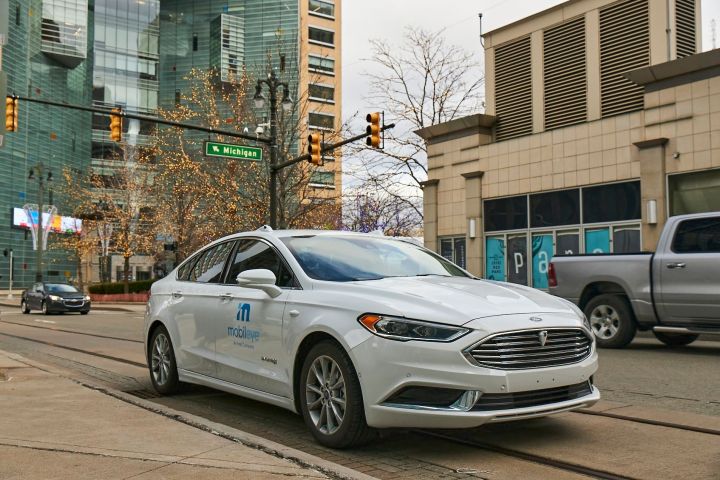
A Tesla in Autopilot mode can ply the highways of Northern California without issue, but when it comes to congested cities packed with erratic vehicle traffic, bikes, and pedestrians, cameras don’t always cut it. Or they didn’t, anyway. After years of testing, Intel-owned Mobileye intends to embrace the madness of the metropolis by rolling out self-driving cars in cities across the world.
On Monday, the first day of CES 2021, the company announced that Tokyo, Shanghai, Paris, Detroit, and New York City will all see fleets of Mobileye-powered vehicles rolled out in early 2021, if all goes well (regulatory issues are still being ironed out in NYC).
The key, says CEO Amnon Shashua, is technology that lets Mobileye map entire cities without an army of engineers on the ground. More than 1 million vehicles from six different carmakers are already sharing data with Mobileye, allowing the company to build high-definition maps of cities without needing a physical presence there. The company just proved this approach in Munich, where it successfully launched autonomous vehicles with just two weeks of testing and two employees in the city. Mobileye calls this technology Road Experience Management, or REM.
A complementary technology called Responsibility-Sensitive Safety, or RSS, will allow the vehicles to deal with unpredictable city drivers. “If we’re going to deploy an AV car amongst other human drivers, it needs to behave as a human would,” said Shashua. “Humans make assumptions. We replicated those assumptions in a mathematical way.” So while an autonomous car may know it has the right of way, it will still anticipate other drivers violating that right of way, and react accordingly.
In addition to its camera-based advances, Mobileye announced that it will be working with parent company Intel to develop chip-based lidar by 2025. That puts Intel in competition with many other companies racing to develop solid-state lidar, but Shashua insists that Intel’s existing silicon manufacturing facilities give it a leg up.


